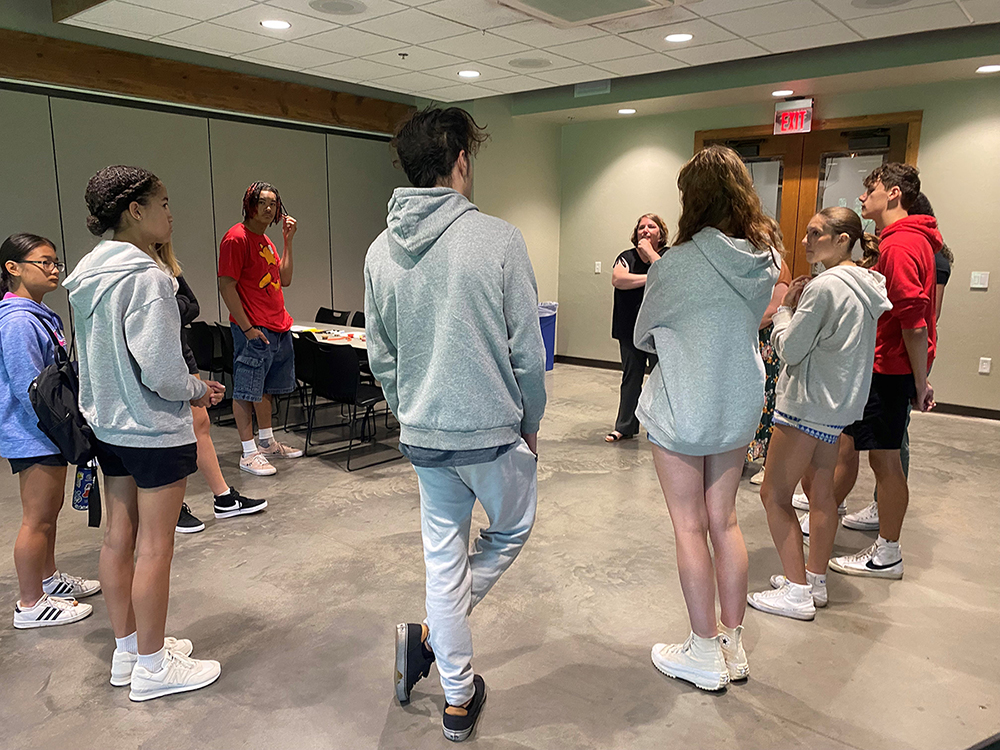 ThedaCare brought together 25 youth, from middle school ages through young adults in their early 20s, to talk about the impact of social media on mental health.
ThedaCare brought together 25 youth, from middle school ages through young adults in their early 20s, to talk about the impact of social media on mental health.As part of its commitment to improve the health and well-being of the communities served, ThedaCare regularly engages a broad array of community leaders to identify and address local health concerns.
“We recognize the importance of having input from individuals experiencing the health issues their communities are facing, so we organized local Community Health Action Teams (CHAT teams) in each of these markets,” said Paula Morgen, Director of ThedaCare Community Health Improvement (CHI). “These teams are made up of leaders from all sectors of the community, including local government, public health, business, education, health care, philanthropy, non-profit and faith groups. By meeting regularly with people who know their community best, we are able to better understand health issues as well as bring together people who feel ownership in the community to work together on solutions.”
The primary way CHAT teams help the community learn about the effects of a health issue is through an event known as a ‘plunge,’ which is a daylong immersion into the community to learn firsthand about the issue being studied.
Through feedback and discussion, it was determined that the next plunge would focus on youth mental health and social media.
Mental health, particularly coming out of the pandemic, was the number one concern across all markets in our recent Community Health Needs Assessments. In addition, U.S. Surgeon General issued a warning about the effects social media is having on the mental health of teens and pre-teens.
Recognizing they are not experts about how youth use social media, ThedaCare’s CHI team gathered input from area youth to plan this fall’s plunges. On Tuesday, June 20, ThedaCare brought together 25 youth, from middle school ages through young adults in their early 20s, to talk about the impact of social media on mental health and how they would organize a plunge day on this topic.
Morgen noted it was clear the youth were aware of the negatives of social media but seemed to accept those risks as part of the cost of staying connected. She noted the younger youth were more concerned about bullying and fear of missing out, whereas the young adults seemed more focused on social media’s long-term impact on younger kids. The group also commented on ways parenting can have positive and negative effects on kids’ social media behavior.